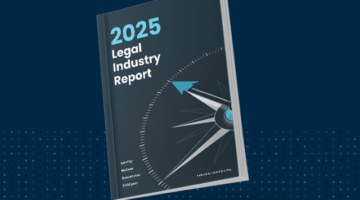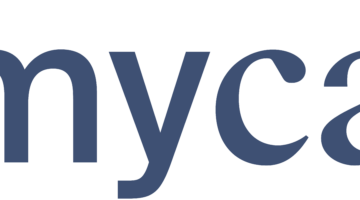
Chris Chapman
“Legacy. What is a legacy? / It’s planting seeds in a garden you never get to see.”
— Lin-Manuel Miranda, “The World Was Wide Enough,” Hamilton
This month, Access Group announced the award of $1,280,000 in grants to promote access, diversity, and research in legal education. Its president and CEO, Christopher Chapman, stated, “Access Group is very pleased to award grants to organizations that advance opportunities for historically underrepresented students to attend, and succeed in, law school.”

2025 Legal Industry Report: Key Insights for Law Firm Growth & Efficiency
Is your firm keeping up with legal finance and tech trends? The 2025 Legal Industry Report shows how firms optimize cash flow, automate payments, and use AI. Download now for key insights.
Among this year’s award winners are: the Illinois Institute of Technology (IIT) Chicago-Kent College of Law, St. John’s University School of Law, Ohio State University (in partnership with the Law and Leadership Institute), University of Baltimore School of Law, University of Houston Law Center, and Elon University School of Law.
Last week, I had the opportunity to catch up with Christopher Chapman. He shared with me innovative programs, interesting data, and cutting-edge research all meant to improve the diversity and inclusion pipeline in legal education and the profession as a whole. Without further ado, here is a (lightly edited and condensed) write-up of our conversation:
Renwei Chung (RC): As a nonprofit membership organization, Access Group has made quite the transformation over the last several years. For those unfamiliar with your company, can you tell us a little bit about its history and its mission going forward?
Chris Chapman (CC): After 10 years as a division of the Law School Admission Council (LSAC) tasked with facilitating education financing for law students, we were spun-off in 1993 as an independent, nonprofit membership organization named Law Access, Inc. From there, we evolved into a full-service nonprofit lender, acting as a market leader, providing the impetus for increased loan affordability through elimination of fees and reduction of interest rates for our borrowers, with the need to compete with us forcing most other lenders to do the same. While our mission has evolved as needs have changed, we have consistently placed aspiring professionals at the center of our efforts, with a heightened focus on supporting access to those from underrepresented groups.

How MyCase’s Smart Spend Can Help Increase Your Profits
This tweak to your financial management seems like a no-brainer.
The legislative elimination by Congress in 2010 of our role in the federal student loan program, along with all private-sector lenders, only strengthened the commitment to our mission.
RC: How do member law schools benefit from being part of your organization?
CC: Access Group’s membership is comprised of nearly 200 nonprofit and state-affiliated ABA-approved law schools. Our member schools pay no dues, yet they directly benefit in a number of important ways, including: the free availability of student financial counseling, tools and publications; and, free distribution of research and other reports supporting the understanding and furtherance of access for diverse and underrepresented students, increased affordability, and the lasting value of a legal degree.
Moreover, our policy advocacy and analysis division educates and informs policymakers and influencers on actions that make legal education work better for students and society alike.
RC: Last month, the Access Group Center for Research & Policy Analysis released the 2016 Legal Education Data Deck. It is organized around the three driving principles of Access Group’s research agenda: access, affordability, and the value of legal education. Can you tell us more about these driving principles and what readers can learn from reading the report?
CC: Updated annually, the Legal Education Data Deck examines law school admission, bar passage rates, and job placements and salaries for recent graduates using the latest data released by the Law School Admission Council, the National Association for Legal Placement, and the National Conference of Bar Examiners.
The publication includes findings about law school applicants and starting salaries. For example, the percentage of male applicants has slightly declined, making females the majority of law school applicants. Hispanic/Latino applicants were the only ethnic group with an increased number of applicants from 2014 to 2015, but their admission rates decreased a percentage point from 2014 to 2015.
The Legal Education Data Deck is part of Access Group’s commitment to making legal education data easily accessible, understandable, and usable. Our research is focused on our driving principles: expanding access, improving affordability, and enhancing the value of legal education.
RC: Since 2014, your organization has given out various grants. This month, you announced several large Legal Diversity Pipeline grant awards and directed grant awards amounting to $1,280,000. What criteria do you typically use in selecting award winners?
CC: We believe in an outcome-driven approach to grantmaking. We fund projects that have the potential to move the needle in legal education. Measurement and evaluation are essential for demonstrating the effectiveness and scalability of programs, and are key factors when deciding what grants we make. We also encourage proposals that display a collaborative approach and strong partnerships with other organizations. Since the inception of the grant program in 2014, the Center has awarded nearly $4 million in grants.
We currently operate four grant programs: the Directed Grants Program; the Legal Education Diversity Pipeline Grant Program; the Unsolicited Grants programs; and, the Research and Dissertation Fellows program. The Center is now accepting applications to the Research and Dissertation Fellows Program, which is designed to promote scholarship on issues related to access, affordability and value of legal education. The program awards $50,000 to scholars and $25,000 to doctoral students.
RC: Expanding access to legal education seems to be a very big priority for Access Group. In addition to grants, what else can we do to promote access, diversity, and research in legal education?
CC: With the Access Group Center for Research & Policy Analysis purposefully located in Washington, D.C., Access Group strives to be the primary resource for policymakers and their staff regarding the critical issues facing legal education specifically, and graduate and professional education more broadly. We develop policy positions and advocate for key policy changes that impact access, affordability and the value of legal education.
We believe that the reauthorization of the Higher Education Act presents an opportunity to strengthen graduate and professional education to help students better manage the expense and succeed in their chosen careers. Our policy positions are student-borrower friendly and include easing the dischargeability of student loans in bankruptcy, maintaining the Public Service Loan Forgiveness program, and simplifying the overly complex student loan system.
RC: It was great chatting with you. Is there anything else you would like to share with our audience?
CC: One of Access Group’s top priorities is equipping our stakeholders to make data-informed decisions by providing tools and training on data use. We launched a free, online suite of data tools that allow the legal education community to compare schools, monitor trends and organize datasets. These tools were developed using data reported by law schools to the American Bar Association and are available at DataTools.AccessResearch.org.
Access Group also sponsors and hosts events to provide opportunities for best practice sharing, dissemination of research and the development of communities of learning among members, grantees and other stakeholders interested in access, affordability, and the value of legal and other graduate and professional education. In mid-November, we held our Legal Education Research Symposium and our Graduate & Professional Financial Aid Conference—both annual events that drew record numbers of attendees.
RC: On behalf of everyone here at Above the Law, I would like to congratulate this year’s Legal Education Diversity Pipeline Grant Program award winners. We wish them ultimate success in moving the needle forward for diversity and inclusion in the legal profession.
Renwei Chung is the Diversity Columnist at Above the Law. You can contact Renwei by email at [email protected], follow him on Twitter (@renweichung), or connect with him on LinkedIn.